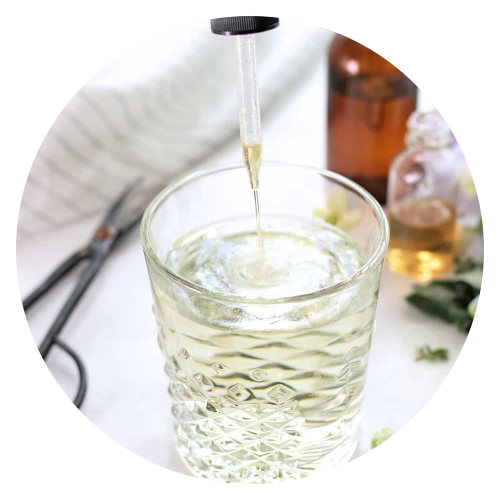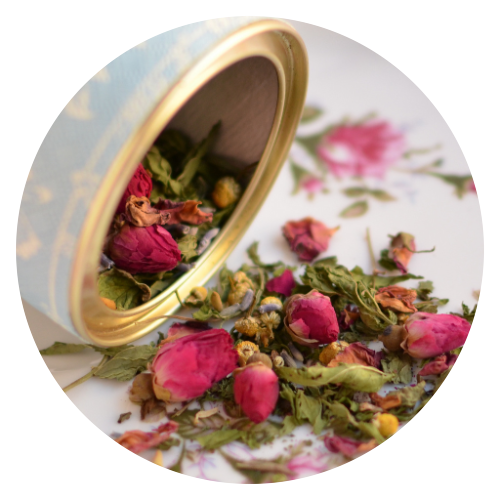When injury occurs, the swelling, redness, and warmth are signs that your immune system is sending white blood cells, immune cells, and nutrients to the affected areas, which is key in healing. But this type of helpful inflammation is only temporary, therefore, when the infection or illness is gone, inflammation should go away as well. When the body is full of inflammation it makes managing painful conditions very difficult to manage.
The National Institute of Allergies and Infectious Diseases reported:
While today’s modern diet may provide beneficial protection from micro- and macronutrient deficiencies, our over abundance of calories and the macronutrients that compose our diet may all lead to increased inflammation, reduced control of infection, increased rates of cancer, and increased risk for allergic and auto-inflammatory disease.
Some of the best anti-inflammatory foods:
1. Blueberries
Berries contain a class of antioxidants called flavonoids, but the anthocyanins specifically contribute to their anti-inflammatory effects by effectively turning off inflammatory and immune genes. And when it comes to anthocyanins, blueberries are the deal! Blueberries are also rich in vitamin C and resveratrol, which promote anti-inflammatory responses through decreasing inflammatory free radicals.
2. Broccoli
For an anti-inflammatory diet, broccoli is invaluable. It is high in both potassium and magnesium, and its antioxidants are particularly potent anti-inflammatory substances in their own right.
3. Green Tea
The most powerful of all catechins, a compound called epigallocatechin gallate, or EGCG, is found almost exclusively in green tea. Scientific studies, like one in the Journal of Advanced Pharmaceutical Technology & Research, suggest that the high EGCG and polyphenol content in green tea make it a stronger anti-inflammatory elixir than other teas like black tea.
4. Celery
Celery contains both antioxidants and anti-inflammatory properties that help control blood pressure, prevent heart disease, and control cholesterol levels.
5. Salmon
Omega-3 fatty acids reduce inflammation and may help lower risk of chronic diseases, such as heart disease, cancer and arthritis. Salmon is an excellent source of essential fatty acids, and considered one of the best omega 3 foods.
6. Coconut
We can't say enough about the way herbs and oils work together to form anti-inflammatory partnerships. Healthy fats and spices create strong anti-inflammatory compounds, especially coconut oil and the components of turmeric . In a study in India, virgin coconut oil reduced inflammation and healed arthritis better than leading medications.
7. Beets
Beets are full of antioxidants. The antioxidant, betalain, found in beets, is what gives them their vibrant color and is an excellent anti-inflammatory.
8. Dark Chocolate
Good news, chocolate lovers! The antioxidants in cocoa helps prevent excess weight and actually lowers blood sugar levels, and the gut microbes in our stomach ferment chocolate into heart-healthy, anti-inflammatory compounds that shut down genes linked to insulin resistance and inflammation.
9. Red Peppers
Out of the three colors of bell peppers, red has the highest amount of inflammatory reducing properties. Luteolin, found in red peppers, has been found to neutralize free radicals and reduce inflammation.
10. Turmeric
The curcumin in turmeric gives it that beautifully yellowy-orange color, and it is the active compound that contains powerful anti-inflammatory and antioxidant properties. Curcumin directly inhibits the activation of inflammatory pathways through shutting off production of two pro-inflammatory enzymes, COX-2, and 5-LOX. Unless you are taking turmeric in tincture form, don't forget to pair it with black pepper extract or coconut oil to boost your bodies ability to absorb all the goodness.
11. Brown Rice
Brown rice, millet, and quinoa are loaded with fiber that helps produce a fatty acid that turns off genes related to inflammation and insulin resistance. The high B vitamin content also helps reduce the inflammatory hormone, homocysteine. We love Genmaicha tea because it contains two of the most anti-inflammatory foods, green tea and brown rice.
12. Chia Seeds
Chia Seeds contain both omega-3 and omega-6, which are powerfully anti-inflammatory when consumed in balance with one another. Add chia seeds to shakes, smoothies, and almost any recipe.
13. Ginger
Use ginger fresh, dried, or in supplement form and extracts. Ginger,is an immune modulator that helps reduce inflammation caused by overactive immune responses.
14. Garlic
Garlic has been found to favorably stimulate anti-inflammatory proteins while suppressing inflammation. Take an aged garlic supplement or be sure to crush fresh garlic to maximize absorbability.
15. Rosemary
Rosemary is a powerful anti-inflammatory because of its high concentration of antioxidant compounds. The anti-inflammatory activity comes from carnosic acid and carnosol, two polyphenolic compounds in rosemary which effectively fight inflammation.
16. Bone Broth
Bone broths contain the minerals calcium, magnesium, phosphorus, sulphur, among others, in a forms that your body can easily absorb. You know those super pricey compounds sold as anti-inflammatory medicine that contain chondroitin sulphates and glucosamine? Well it's in bone broth!
17. Raw Honey
Honey contains proteolytic enzymes that are essential when it comes to modulating the inflammatory response. Proteolytic enzymes break down proteins and cellular debris and clears them out to reduce the body’s immune and inflammatory response. Trouble with blood sugar? Choose tupelo raw honey!
18. Yogurt
Yogurt contains the good gut bugs that break down foods into anti-inflammatory fatty acids. Choose real activated yogurt without fructose corn syrup, or make your own!
19. Spinach
Spinach is rich in carotenoids, and vitamins C, E, and K, which all protect the body from pro-inflammatory cytokines. A form of vitamin E in spinach called alpha-tocopherol was shown to decrease inflammation in patients with coronary artery disease, and was found to reverse levels of the same inflammatory adipokine compounds released by belly fat.
20. Pineapple
Pineapple contains bromelain, a powerful anti-inflammatory. Bromelain has been found to be beneficial in reducing asthmatic symptoms through decreasing the spread of proinflammatory metabolites and relieving post-exercise inflammation by helping to repair muscle soreness through high levels of potassium.
21. Tomatoes
Tomatoes are a great source of lycopene, an antioxidant that fights depression-causing inflammation. Because lycopene is at the highest level in tomato skins, you are more ahead with cherry tomatoes over a large one, but either is beneficial.
Our Recommendations:
Natural fighting inflammation pain management is our specialty, so be sure to read our other articles on inflammation.



